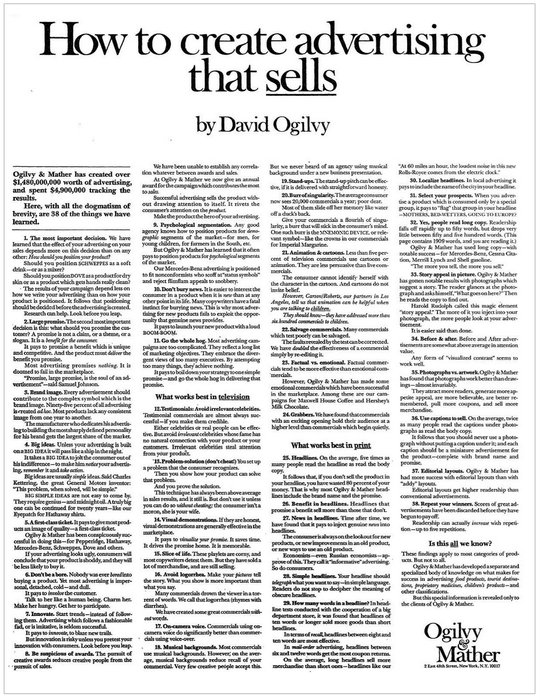
question that now came up 5x about our new website:
"why is so text-heavy? people don't read"
long from writing (like from ogilvy here) is where websites roughly originate from.
he was the biggest proponent of going into DETAIL.
se... See more
